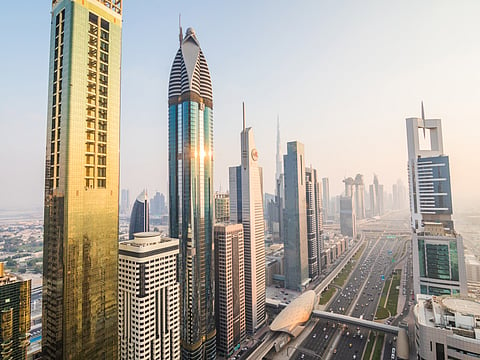Why Dubai property market is a global investment powerhouse
Demand-led development and strong regulations are driving Dubai property market’s growth

In 2025, Dubai’s real estate market isn’t just growing; it’s evolving with intention. With long-term planning, investor trust and transparent regulatory frameworks, the emirate has firmly positioned itself as a mature, globally competitive property market. Speculation has taken a back seat to sustainability, with investors responding to a clear, stable growth trajectory.
According to Dubai Land Department, more than 96,000 property transactions worth Dh322 billion were recorded in the first half of 2025, with nearly 45 per cent of the value coming from off-plan sales. Bayut’s market insights further indicate heightened activity in affordable and mid-tier communities, where both rental yields and end user demand remain strong. The market is no longer defined by short-term gains, but by well-informed, long-term investment.
Key highlights in the first half of 2025
Apartment prices rose by up to 13 per cent compared against the second half of 2024, driven by strong activity in Dubai Silicon Oasis, International City and JLT.
Villa prices in key locations jumped up to 25 per cent, with demand concentrated in Dubailand, Arabian Ranches 3 and Dubai Hills Estate.
High-yield apartments in International City, Dubai Sports City, Dubai Silicon Oasis and JVC recorded gross rental yields between 7 per cent and 11 per cent.
Popular areas saw yields between 5 per cent and 8 per cent, with villas in JVC offering the highest returns at 7.28 per cent.
This first half snapshot underscores Dubai’s transformation into a mature, dynamic and deeply investment-ready market, driven by a balanced mix of off-plan launches, buyer confidence and diverse housing demand.
Strategic growth with global appeal
What’s notable isn’t just the volume of transactions, it’s the nature of demand. Buyers today are families relocating, professionals settling long term and institutions making calculated moves. High-end properties continue to attract global capital, while mid-market communities enjoy strong regional interest.
Developers have become more disciplined too, launching projects in line with real demand. Master-planned communities such as Dubai Hills, Tilal Al Ghaf and Dubai Creek Harbour are thriving, not only for the properties they offer but also for the lifestyles they cultivate.
Policy-driven resilience
While Dubai’s macroeconomic strength sets the stage, it’s the city’s policy direction that’s driving long-term momentum. Initiatives like the Golden Visa, foreign ownership reforms and tax incentives have played a key role in reshaping sentiment.
Tools such as Bayut’s TruEstimate and the city’s robust property transaction data continue to make the market more transparent and accessible. This shift to a data-informed ecosystem has replaced the unpredictability of past cycles with clarity and confidence.
Yield-backed demand and end user confidence
Average gross yields of 6-8 per cent aren’t being driven by short lets or speculation. They reflect real demand from professionals and families putting down roots. Freehold ownership, streamlined transactions and strong governance have made Dubai one of the world’s most attractive destinations for long-term investment.
Luxury as long-term strategy
The ultra-luxury market is thriving on fundamentals. Dubai now ranks among the world’s top 20 wealthiest cities, home to 81,000 plus millionaires. For HNWIs, Dubai offers more than property, it promises lifestyle, stability and secure returns.
With 81,000 plus homes projected for delivery in 2025, the city’s growth trajectory might seem ambitious. However, it’s well supported. Infrastructure enhancements, improved connectivity and new urban hubs are aligning to unlock opportunity in previously fringe areas.
More than cycles, Dubai’s property market is defined by alignment. From regulatory foresight to demand-led development, every indicator points to a market that’s growing faster and smarter. The world is taking notice and investors are taking part.
Proptech driving more engagement
“Dubai’s real estate market has moved beyond momentum—it’s now driven by maturity, transparency and smart innovation,” says Haider Ali Khan, CEO of Bayut and dubizzle, CEO of Dubizzle Group MENA and Board Member of the Dubai Chamber of Digital Economy. “With proptech accelerating how buyers discover, evaluate and transact, we’re seeing deeper engagement from both global investors and long-term residents.
“At Bayut, we believe technology isn’t just supporting the market, it’s shaping it. Data-led platforms and intelligent tools are making property decisions more informed, faster and more inclusive than ever before.
“Dubai’s success lies in the synergy between forward-thinking policy and digital progress. This combination is what keeps global investor confidence strong and the market resilient.”
Today Dubai is setting the tone for what a future-ready real estate market looks like.
— In association with Bayut
Sign up for the Daily Briefing
Get the latest news and updates straight to your inbox


